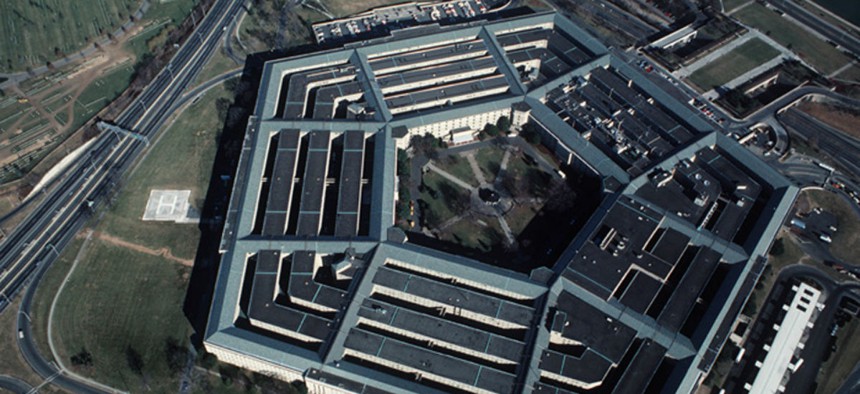
Defense Department file photo
Pay Changes for Defense Civilians, a Request for a Time and Attendance Study, and More
A weekly round-up of pay and benefits news.
In a memo to agency leaders last week, Office of Personnel Management Director Jeff Pon highlighted a number of changes and extensions to civilian employee pay programs at the Defense Department, all of which were a result of the National Defense Authorization Act signed last fall.
The Reserve Income Replacement Program, a Defense program to reimburse reservists who have been on repeated or extended active duty deployments for income lost while not at their day job, will now run until Dec. 31, 2018. The extension does not apply to differential payments, a similar but separate program for reservists who also are federal workers.
Also extended until the end of 2018 is the authority for an agency head to waive premium pay caps for qualifying civilians working overseas. In order to be considered for a pay cap waiver, a federal employee must work overseas either in an area under the responsibility of the U.S. Central Command, or a region that was once under Central Command but now is part of U.S. Africa Command’s responsibility. Additionally, the pay cap after a waiver will increase to $243,500 for 2018.
Pon said that OPM does not plan to issue new regulations governing the waiver authority, but said agencies should develop procedures for how the program is used if any of their employees qualify for it.
The NDAA also extends until the end of fiscal 2019 agencies’ authority to provide an employee with allowances, benefits and other financial incentives on par with those of members of the U.S. Foreign Service, provided they are on official duty in Pakistan or a combat zone.
Finally, the rate of overtime pay for civilian Navy employees who support the service’s nuclear aircraft carrier in Japan has been extended until Sept. 30, 2019. The provision authorizes the Navy to pay time and a half to employees who are assigned to temporary duty to work on or in support of the aircraft carrier.
In a welcome video last week, Pon, who arrived at his post last month after a lengthy Senate confirmation process, spoke more broadly about his intention to reform the federal civil service, alongside Deputy Director Michael Rigas.
Pon highlighted the president’s management agenda, noting that in order to become more attractive and competitive employers, agencies will need to overhaul not only processes involving hiring and firing, but also compensation and a variety of support and technical systems.
Over on Capitol Hill, leaders of the House and Senate oversight committees submitted a bipartisan request asking investigators at the Government Accountability Office to provide an update on time and attendance problems at federal agencies.
Spurred by a 2016 report from the Commerce Department Office of the Inspector General outlining potential timecard abuse at the U.S. Patent and Trademark Office, which found nearly 300,000 “unsupported hours” from patent examiners over a 15-month period, committee members asked for a report looking at time and attendance reporting across government.
“USPTO has since worked to increase safeguards related to their time and attendance controls by implementing the OIG’s recommendations in both reports, which we commend,” wrote the lawmakers. “However, the committees seek to ensure that all agencies across the federal government are taking similar appropriate steps to prevent time and attendance abuse.”
GAO last reported on the issue on a whole-of-government basis in 2003. The lawmakers noted an update of that report would be particularly useful, given the significant technological advances made in the last 15 years.
NEXT STORY: Most TSP Funds Take Another Tumble in March







